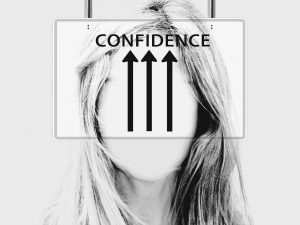My heart is troubled as I read a negative news story about a Minneapolis woman who called police because she thought a neighbor was being sexually assaulted. Somehow, when the police arrived on the scene, the caller was shot to death. At this point in time, there are no explanations as to why a police officer shot her when she approached their squad car. We know the officers’ body cameras were not on and that the woman, Justine Damond, is dead. The question is, “Why?” There is so much in the case we do not know. We are left to react to another negative news story.
Negative news events like this place a city on edge. Emotions run high and often trigger more aggression and violence. The lawlessness we see in the streets of Chicago, the trouble of city gang violence, racial tension, the lack of civility, etc. We view this violence and unrest on screens every day. One has to wonder what all these negative images and stories do to a person.
Basically, the impact can be depressing. When we see negative events, our brain goes into action. We are wired towards survival. Our danger detector (the amygdala) calls our attention to negative stories and events. So, we attend to bad news, in part, because of the threat of danger.
Furthermore, the brain is biased to go negative. We all have a built-in hunger to hear and remember bad news in order to confirm our negative experiences. We are much more sensitive to bad versus good news. Our attitudes are even our dreams are more influenced by bad news.
News organizations know that people are more attuned to bad news which is why one estimate is that 90% of the news is negative. All these negative stories create multiple events for the brain to react to and filter threats. And negative events are especially contagious and shared. There is also some evidence that we respond quicker to negative words and that bad news heightens our need to change and prevent more problems.
But all this attention to bad news can lead to feeling down and depressed. Disturbing images stay with us longer. So how do we protect our minds and hearts, not grow bitter or cynical, and not lose our empathy for others?
Begin by understanding that the more stressed, sick and tired you are, the more likely you are to be reactive to bad news. At those times, it wise to not pile on negative news stories. We may need to do what we teach children–limit our exposure. And when you do see a negative story, tell yourself that media prefers reporting bad news and disaster over slow and steady improvements in our society. You are not seeing the balance. Balance the news with encouraging and uplifting stories of triumph and overcoming.
Keep a spiritual perspective. According to 2 Timothy 3: 1-5, we will see the ramping up of bad news. So while we don’t want to stick our heads in the sand, replace fear with prayer: “But mark this: There will be terrible times in the last days. People will be lovers of themselves, lovers of money, boastful, proud, abusive, disobedient to their parents, ungrateful, unholy, without love, unforgiving, slanderous, without self-control, brutal, not lovers of the good, treacherous, rash, conceited, lovers of pleasure rather than lovers of God— having a form of godliness but denying its power.” This is not going away. But God has not given us a spirit of fear, so remind yourself of His truth, His power and His protection. Direct your worry or concern to prayer. God is telling us what is coming, but doesn’t want us reacting in fear, rather in the hope we find in Him and the promise of a new day. This reality and hope must be balanced.
Focus more of your attention on good reports. “Finally, brothers and sisters, whatever is true, whatever is noble, whatever is right, whatever is pure, whatever is lovely, whatever is admirable—if anything is excellent or praiseworthy—think about such things. Whatever you have learned or received or heard from me, or seen in me—put it into practice. And the God of peace will be with you. ” Philippians 4:8-9. This is one way you balance the negative bias-renew the mind with the promises of God. The power of God is more than positive psychology. It is a belief that God holds all things in His hand and will accomplish His purposes. He has given us a book and His presence to help us on the journey.


